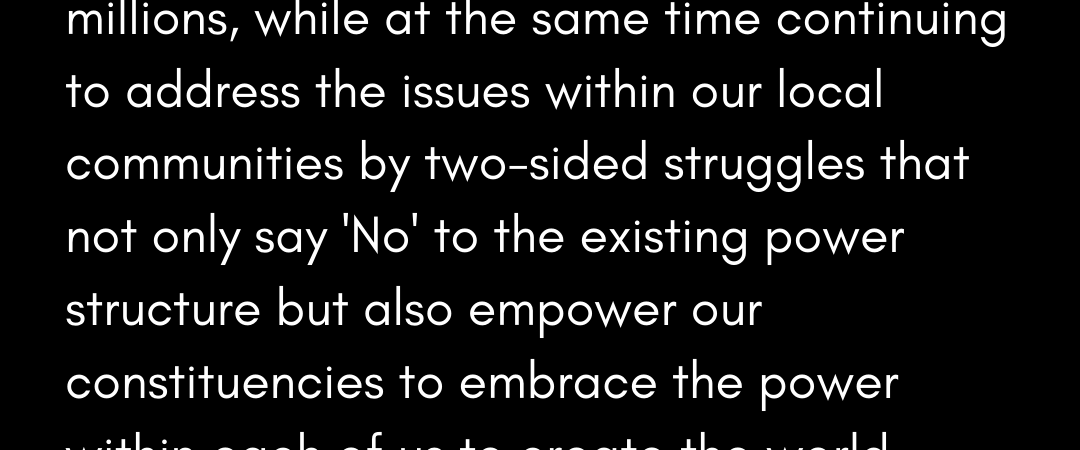Dear Apogee readers,
As a journal composed of several Asian American editors and other editors of color who routinely publish work by other Asian American writers and artists, the rise in anti-Asian attacks, including the recent targeting and murder of six Asian women and others in Atlanta, have taken a personal toll. We grieve the lives of Soon C. Park, Suncha Kim, Yong A. Yue, Delaina Ashley Yaun, Paul Andre Michels, Xiaojie Tan, Daoyou Feng, and Hyun J. Grant. To say that we are mourning and heartbroken does not even begin to capture the extent of our grief over this past year, a year which has brought us further violence towards Black communities, a white supremacist insurrection at the U.S. Capitol, a persistent system of policing that targets the most vulnerable among us, and repeated governmental failures to address a worsening pandemic that has already yielded devastating losses.
On Tuesday, March 16, a white male shooter entered three massage salons where the victims worked or were present and shot them, telling police later that he targeted these establishments because he blamed them for his sexual addiction and that they were a “temptation that he wanted to eliminate.” That this reasoning alone still draws skepticism about the racial motivations behind this violence shows how deeply entrenched white supremacy is in U.S. media. Reports failing to acknowledge the shooter’s fetishization and direct targeting of Asian women only add to our collective fury and grief. The only mainstream news source acknowledging the direct link between the shooter and racism is a Korean news outlet, Chosun Ilbo, which reports that witnesses heard the gunman shout that he would “kill all the Asians” before firing. Despite glaring evidence of racist motivation, the shooter’s actions are reduced to his having “a bad day.” Furthermore, the inability of media outlets to speak with nuance about the shared vulnerability and racialization of massage salon workers and sex workers only continue to add to this injustice.
We cannot ignore that the racism which propelled this violence had been stoked by former U.S. President Trump. Trump’s referral to COVID-19 as the “Chinese virus” assigned a racial character to this pandemic. We braced ourselves for the consequences of this racist rhetoric, knowing it would only embolden the forces of white supremacy that had already gained a more fortified platform during Trump’s presidency.
We must also acknowledge that these forces existed long before Trump. U.S. military and imperialist presence has gravely altered the fabric of many Asian countries, from political and economic restructuring to continued exploitation of Asian women sex workers, an industry which these very forces still render vulnerable. We see the ramifications of U.S. intervention in the Pacific Islands, Vietnam, the Philippines, and more. In the U.S., current attitudes toward Asian communities, and Asian women in particular, are reinforced by historical racist and xenophobic policies, from the Page Act of 1875, which characterized Asian women as “lewd and immoral” to the exploitation of Asian immigrant workers dubbed “coolies.” As these policies have had tremendous impact on the U.S.’s relationship to Asian communities, it is no surprise that these ideas about Asians persist in their current destructive forms today; the targeting of Asian elders and women and the shooting in Atlanta are only the most recent assaults along this dangerous path.
Earlier last year, we mourned the lives of George Floyd, Breonna Taylor, Ahmaud Arbery, Tony McDade, Mychael Johnson, Nina Pop, Monika Diamond, Regis Korchinski-Paquet, and endless more. The rise in anti-Asian attacks cannot be divorced from anti-Black violence and the systemic oppressions perpetrated by a white supremacist state. To call upon the history of Asian solidarity with Black communities now means also confronting the ways in which the U.S. has created a form of racial triangulation that positions white and non-Black communities against Black people. When we draw these connections between racist violence and systemic oppression, we must attend to the ways in which Asian Americans have operated against Blackness, and challenge our activism to more diligently contest the anti-Black legacy of the U.S. Furthermore, we must reject the myth of the model minority assigned to Asian Americans, which has permitted white supremacist systems to scapegoat Asian American communities for the continued oppression of other people of color. We must commit ourselves to the belief that we are not free unless the most impacted among us are free.
We share these words from activist Grace Lee Boggs’ The New American Revolution: Sustainable Activism for the Twenty-First Century: “Our challenge, as we enter the new millennium, is to deepen the commonalities and the bonds between these tens of millions, while at the same time continuing to address the issues within our local communities by two-sided struggles that not only say ‘No’ to the existing power structure but also empower our constituencies to embrace the power within each of us to create the world anew.” These are uncertain and dangerous times, but as Boggs writes, this is a crucial moment for us to challenge the way we organize and dream of more equitable futures. This is a time of deep education and change. We urge you to read about U.S. imperialist history and how it has created the circumstances for oppression of Asian communities globally, how these forces are not divorced from the treatment of Asian American communities domestically, and how Asian American struggles are tied to a powerful legacy of coalitional activism with other marginalized groups. May this education empower you to intervene and help us alter the course of this daily violence we face. Let us not be bystanders to injustice but commit ourselves to a vision of our collective liberation.
In continued strength and solidarity,
Apogee Journal Editors

